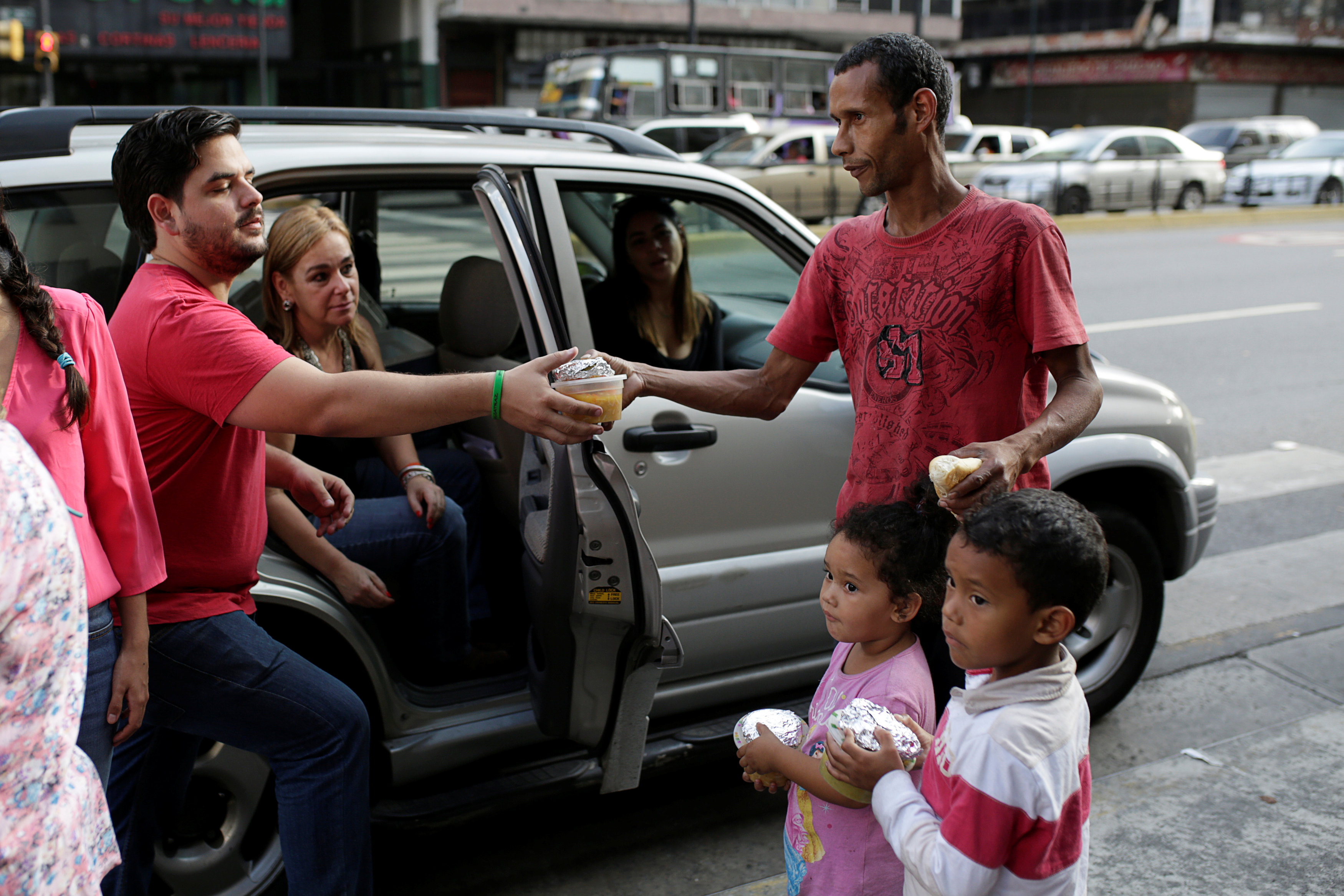
By Andreina Aponte
CARACAS (Reuters) – Their clothes torn and dirty, nine barefoot children yell and applaud as a convoy of cars approaches on a busy street in Venezuela’s capital.
Volunteers emerge handing out soup and clothes to the delight and excitement of the children who have come from a town a couple of hours outside Caracas.
“We started this because we see people every day hunting for food in the trash, not only the homeless but people on their way to work,” said Diego Prada, a 28-year-old entrepreneur who began a charity in December in response to Venezuela’s dire economic crisis.
His ‘Make The Difference’ initiative is one of a plethora of solidarity projects springing up around Venezuela, in the fourth year of a crushing recession that has forced many to skip meals and jostle for scarce subsidized food.
Concerned individuals, businesses, church groups and high-end restaurants have started projects across the country to serve food, donate clothing and help with supplies for struggling hospitals.
Long accustomed to living in one of Latin America’s wealthiest nations, many Venezuelans have been shocked by seeing more and more people trying to salvage food from the trash.

Diego Prada (L), a volunteer of the Make The Difference (Haz La Diferencia) charity initiative, gives a cup of soup and an arepa to a man in a street of Caracas, Venezuela March12, 2017. Picture taken March 12, 2017. REUTERS/Marco Bello
According to a recent study by three Venezuelan universities, 93 percent of the OPEC nation’s residents do not have enough money to buy sufficient food and 74 percent have lost around 18 pounds (8 kg) in the last year alone.
Critics say 18 years of socialist rule, exacerbated by a fall in oil prices, are to blame for Venezuela’s economic collapse. But President Nicolas Maduro says he is the victim of an “economic war” waged by the country’s elite and the U.S. government.
“If the bourgeoisie hide the food, I myself will bring it to your house. National production should go to the people in order to defeat the imperialist war,” Maduro said at an event this month to promote the distribution of subsidized food.
In Caracas, six upscale restaurants and chefs have formed a charity – “Full Stomach, Happy Heart” – that provides food for a geriatric home and a children’s hospital.
They take turns to cook and serve meals there.
“We serve large portions so that the children can share the food with their parents,” said chef and blogger Elisa Bermudez, adding salt to a broth ready for the hospital.
At a nursing home, 55-year-old Maria Ramirez is grateful for the outside help she receives.
“Sometimes we worry that we’re down to our last bag of spaghetti but thankfully in our most critical moments, we always receive a donation.”
(Additional reporting by Maria Ramirez in Puerto Ordaz and Anggy Polanco in San Cristobal.; Editing by Andrew Cawthorne and Tom Brown)